Five brothers who made it through
Photographs taken by an Australian soldier during the Second World War are providing rare glimpses into everyday life during the Pacific campaign.

As we remember the 75th anniversary of the end of the Second World War this year, Fred Bainbridge, 96, a veteran from Bundaberg, Queensland, has shared his photographic archive from the war with the Office of Australian War Graves.
Mr Bainbridge enlisted in February 1942 and from 1943 to 45 served as a Bren gunner with the 26th Battalion, which was recruited in Queensland. In 1943, a company of the 26th was deployed to Dutch New Guinea to defend against any Japanese advance and later the whole battalion was sent to Bougainville to suppress the Japanese forces there.
When war was declared, Fred was just 16 years old. But he put up his age so he could follow his four older brothers and join the fight:
- Walter served with the 2nd Field Artillery Regiment
- Jack was a sapper with the 16 AFD Company
- Henry served with the 11th Australian Field Ambulance
- John was with the 11th Training Battalion.
For their parents, Josephine and John (Sonny) Bainbridge, this was a nerve-racking time but remarkably all five sons made it home.
Fred, a former marksman, said he too was surprised they survived the experience.
‘My mum dropped a tear every time the postman came,’ he said. ‘For five years, she got no information. I was the last one home, after 1,896 days in the Australian Army, 896 of them in New Guinea.
‘Once we were back in Australia, Mum got in touch and we all got together for two weeks. It was great to catch up, but we never talked army. Later, the Department of Defence sent her a badge [the Female Relative Badge issued to the nearest female relative of those who engaged in active service overseas] and she wore it with pride.’
The Bainbridge boys came from a tough life in western Queensland, working as stockmen, labourers and (in the case of Fred) a meatworker.
‘I wouldn’t say we were scared on patrols, we just got on and did our jobs, out in the mud and rain,’ he said. ‘I took a camera with me — Mum bought it for me before I went to war — and, when I could, I’d just walk around and take photos.
‘I had a mate (Bob Mason) who’d get films and, once I’d used them, he’d send them back to his mum in Adelaide. She’d get them developed and send the photos to my mum.’
Fred now has a collection of hundreds of images that depict the details of daily life for an Australian soldier in the Second World War: Japanese prisoners of war doing the Australians’ laundry and cleaning their boots, the disposal of enemy ammunition, and an American cinema being built for Allied troops.
His frontline experiences and photographic adventures came to an end in 1945 when he was shot in the left shoulder and repatriated to Australia. He was discharged in August 1946.
After the war, despite his injury, Fred returned to work at the meatworks in Gladstone; then he held various jobs in road building. He married at the age of 38 and he and his wife Beris had two children, Andrew and Helen (who served in the RAAF).
Seventy-five years on, Fred still keeps in touch with his mates — the others who were also fortunate to come home — and he takes part in Anzac commemorations in Bundaberg.
‘My wife, Beris, wears Mum’s badge. We figure it must be a record for all five of us to have come home.’

Australian troops preparing to board HMAS Westralia I and return home at the end of World War II.

Japanese prisoners of war doing Australians’ laundry at Rabaul.
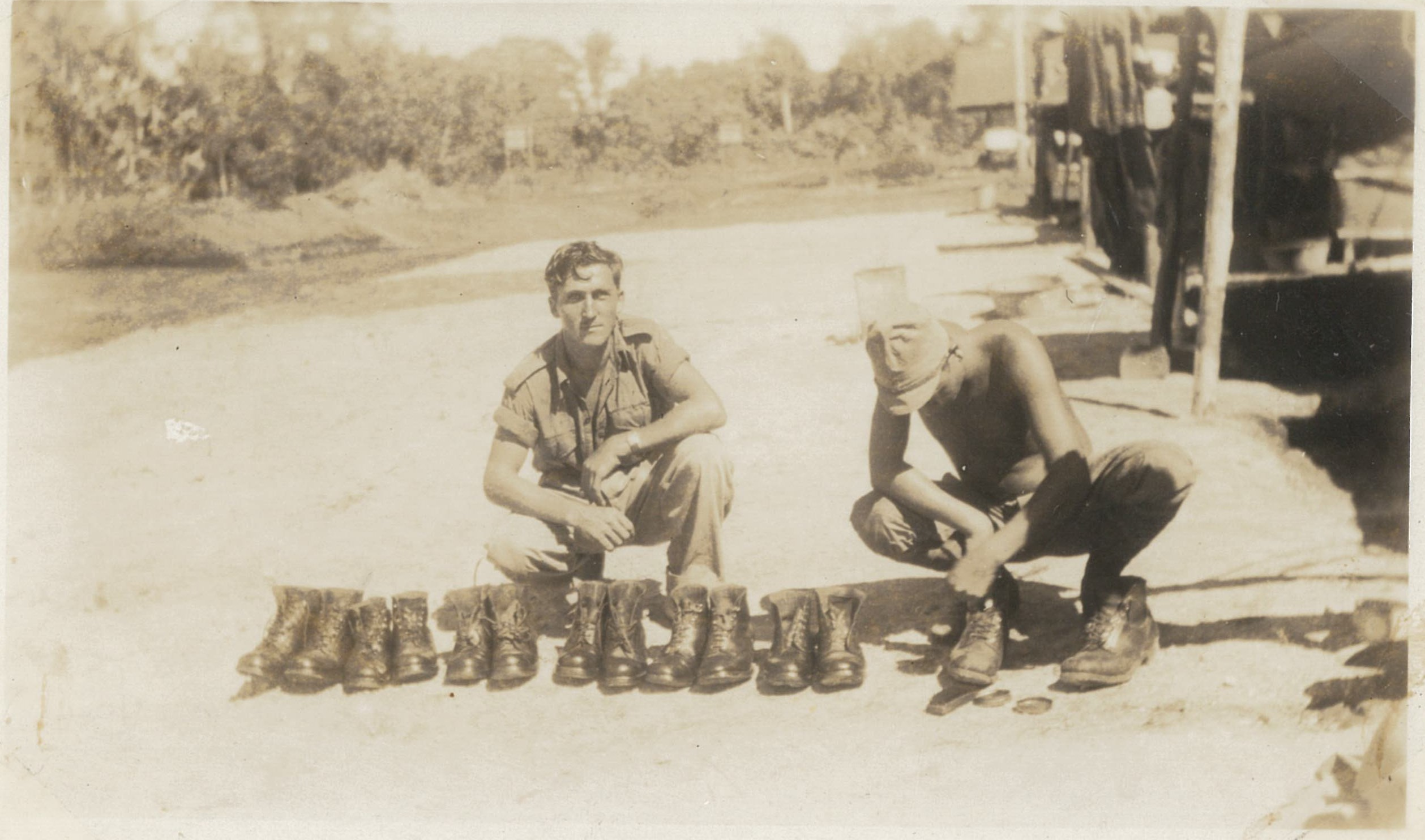
Japanese prisoners of war polishing Australians’ boots at Rabaul.
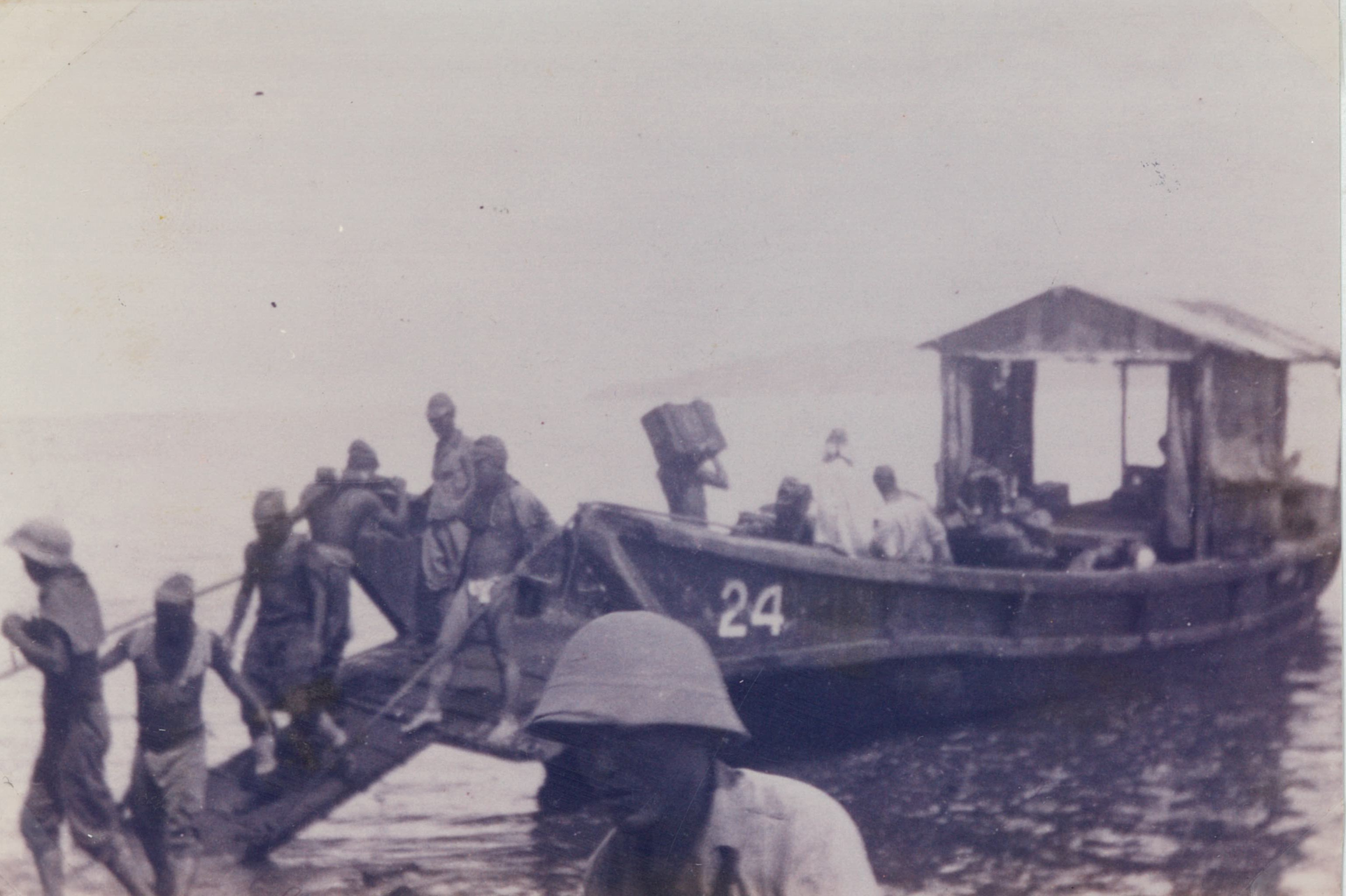
Japanese prisoners of war alighting a Japanese vessel at Rabaul, New Guinea, after surrendering and handing over their weapons, which were dumped into the harbour.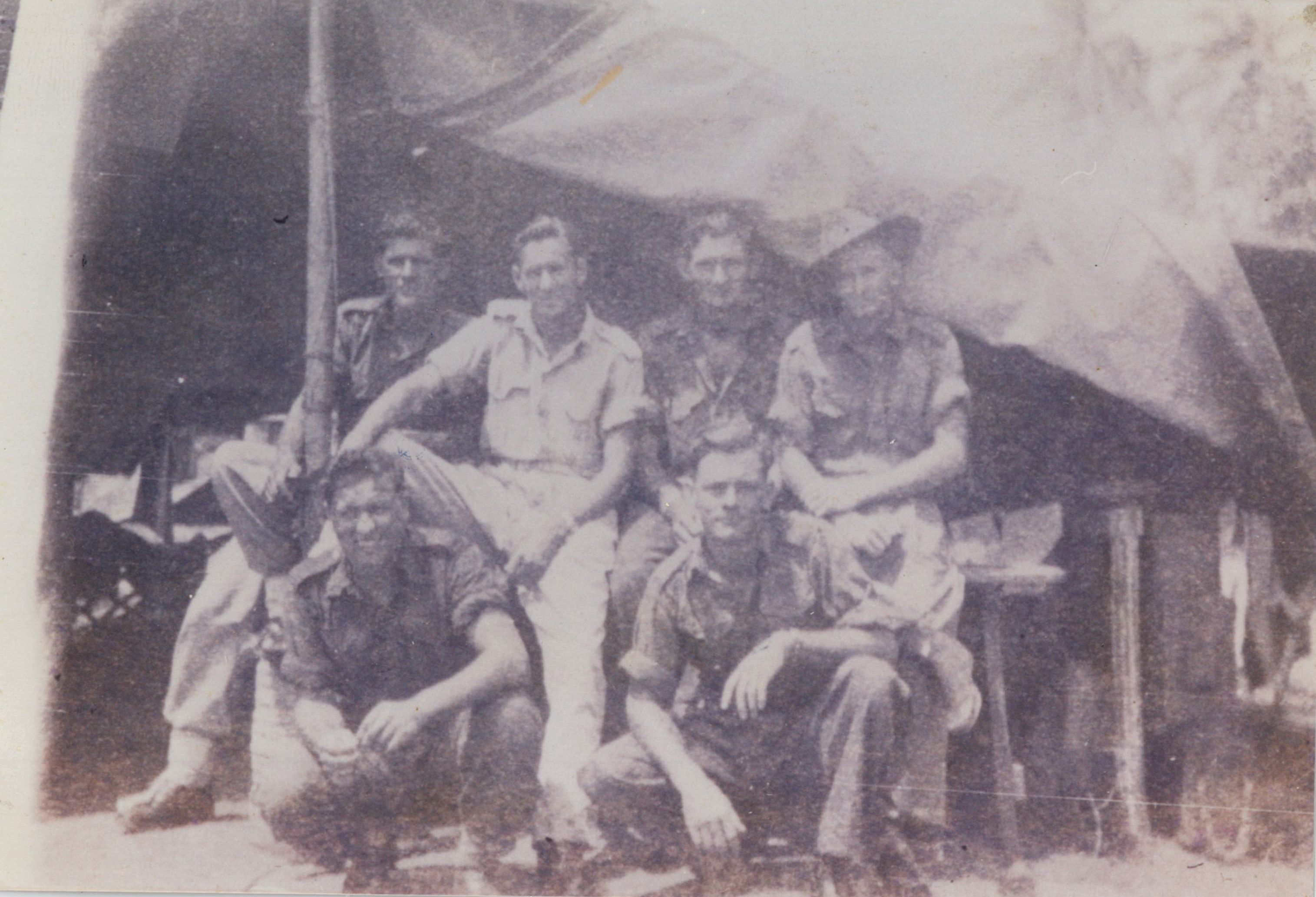
Private Fred Bainbridge (front row, far left) with fellow diggers in Rabaul.
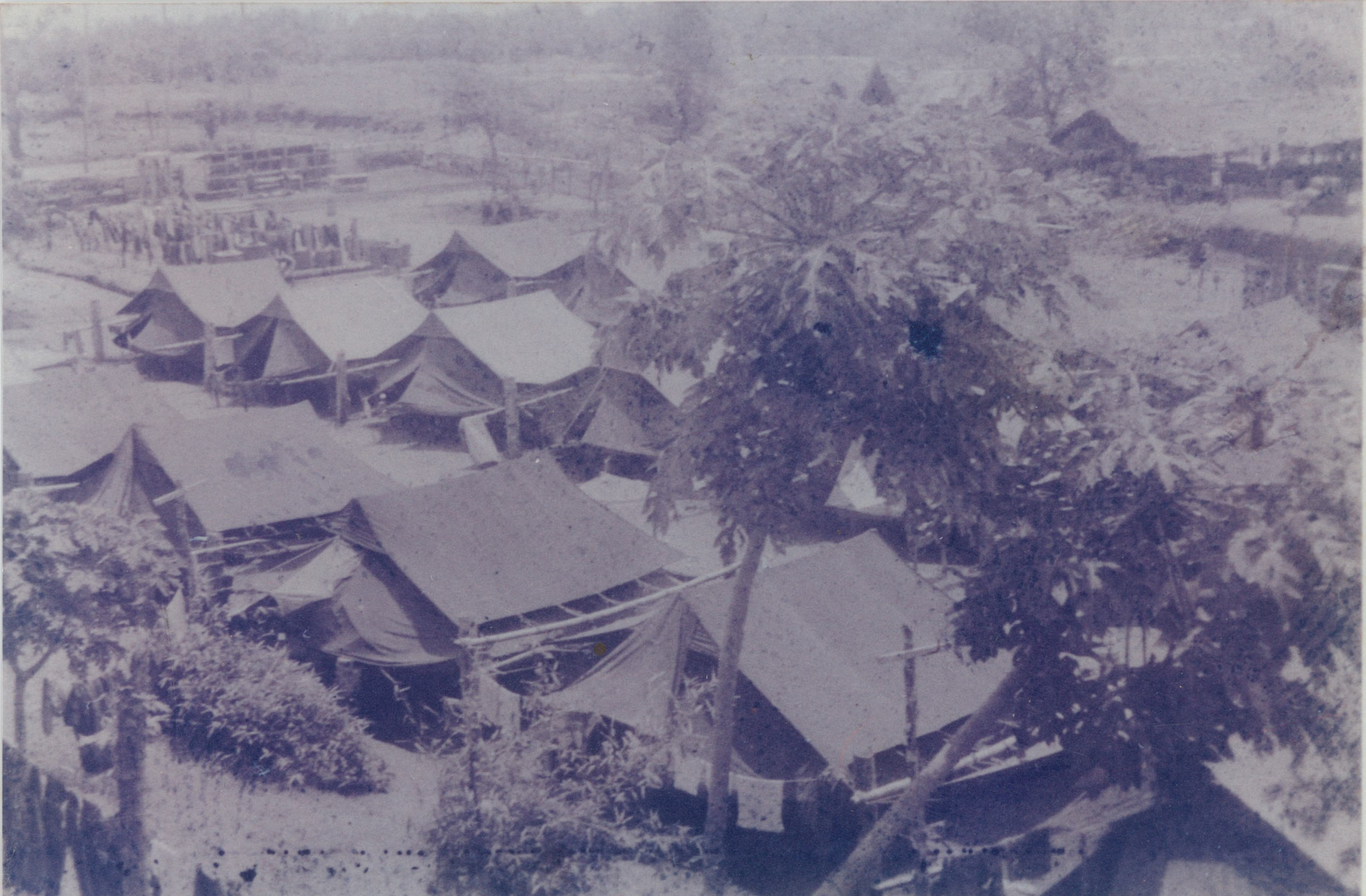
Australian quarters at Rabaul which accommodated six men per tent, each sleeping on a folding camp bed. Over the course of his life, Fred has contracted malaria five times.
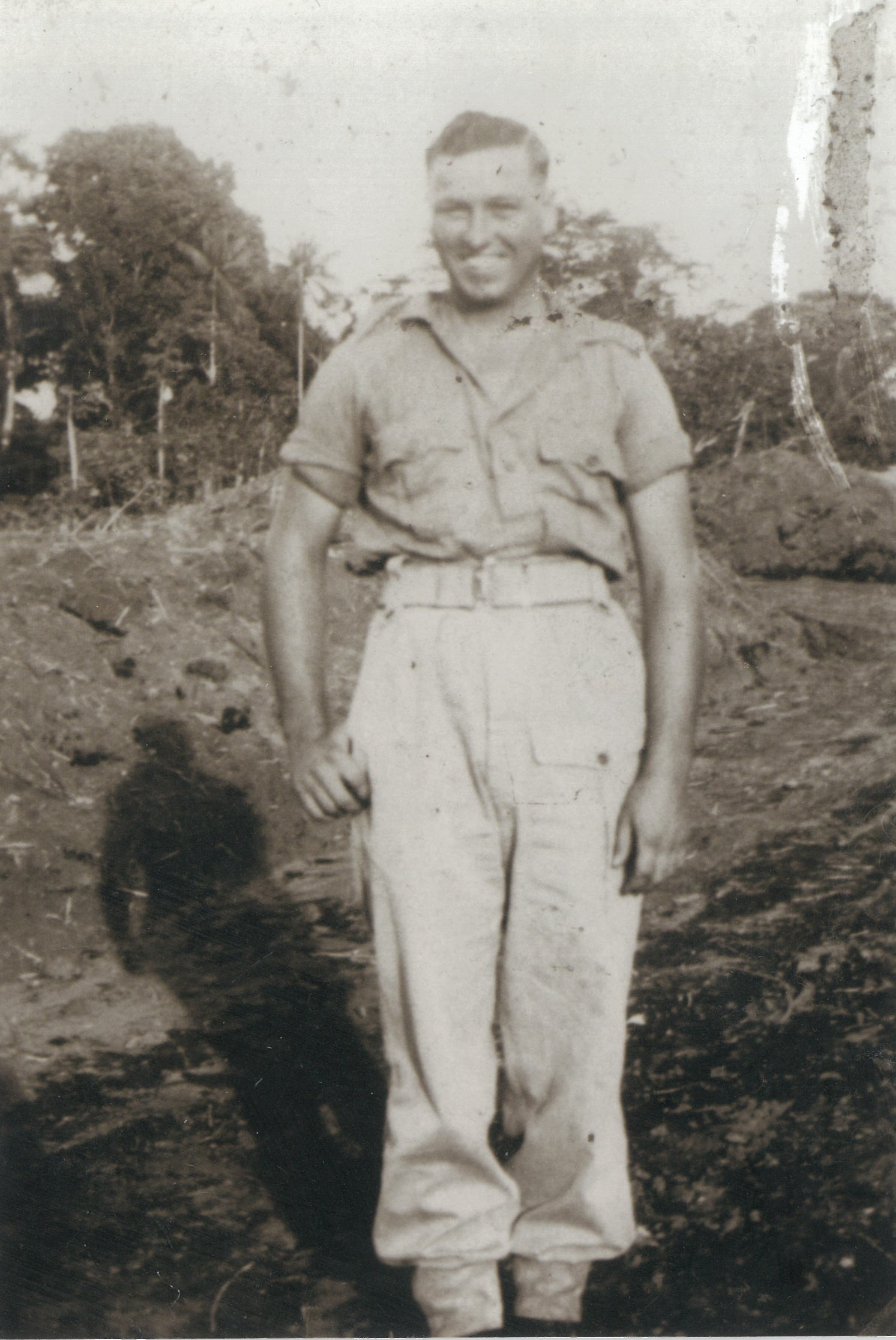
Private Fred Bainbridge, aged 17 ½, in Tanah Merah, Dutch New Guinea (now Indonesia).
